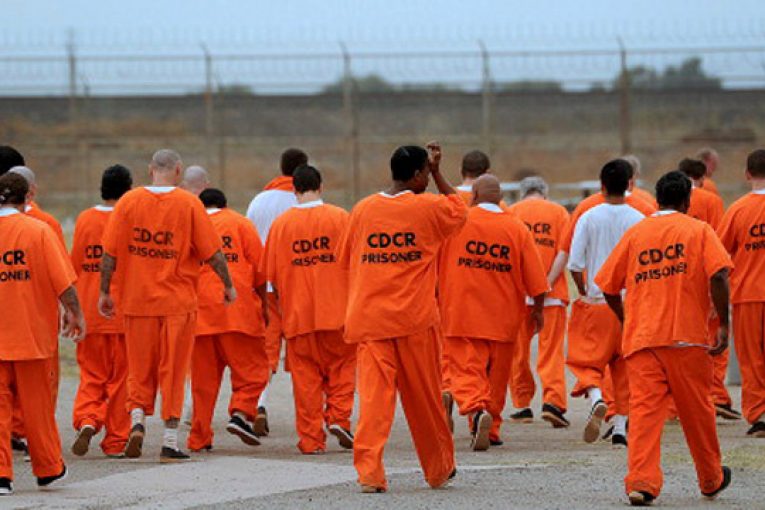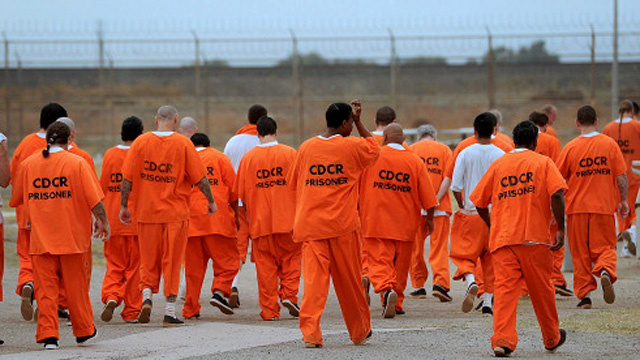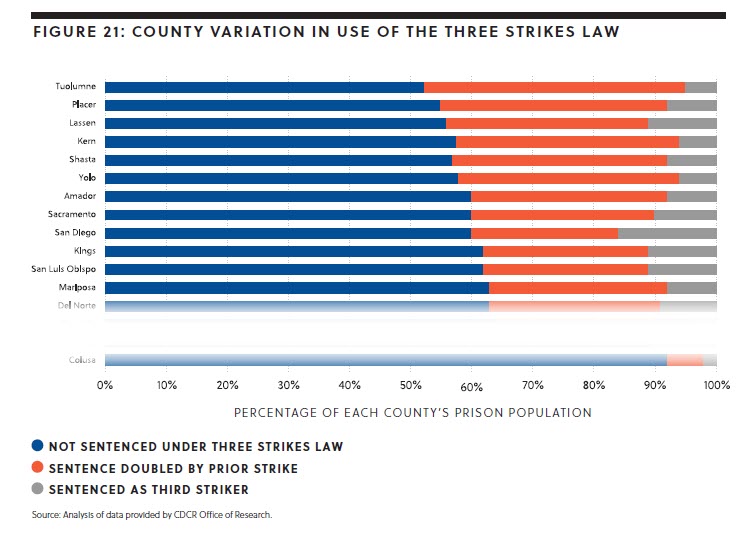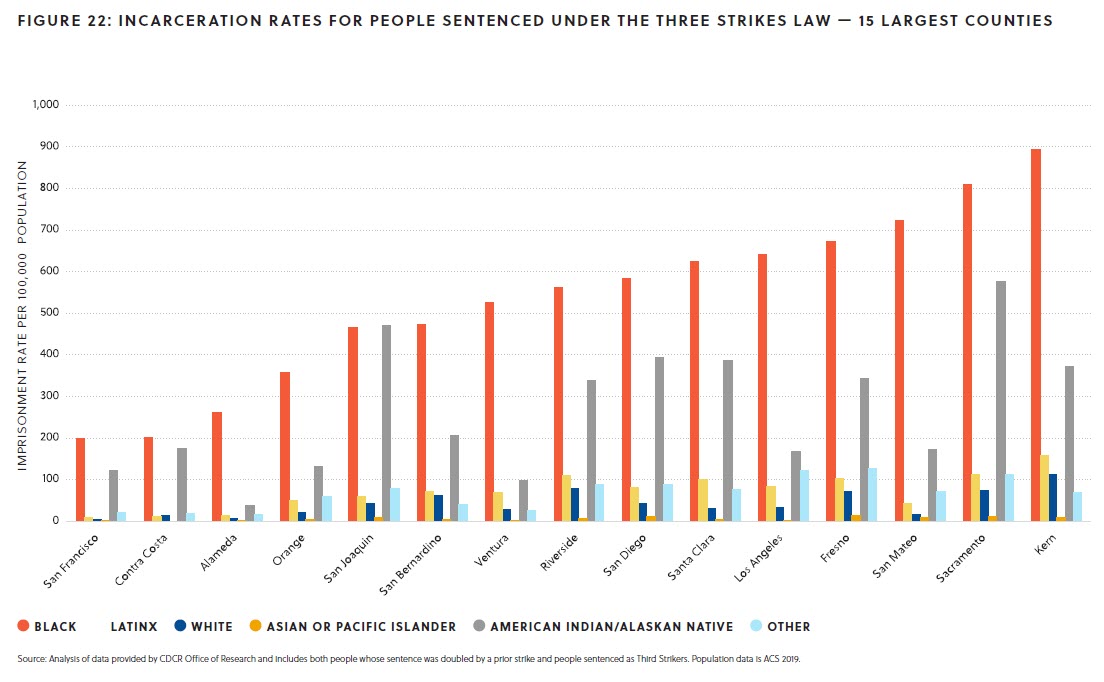

By David M. Greenwald
Executive Editor
Sacramento, CA -For nearly two years, the Committee on Revision of the Penal Code has undertaken an intensive investigation into California’s criminal legal system and this month they have released a sweeping report most notably to repeal the Three Strikes Law and create a review process for people serving LWOP (Life Without Parole).
The committee in its report noted that its recommendations are unanimous and “placed a particular interest on sentences for felony ofenses, the area where the most serious punishments occur.”
The seven recommendations include: Strengthen California’s mental health diversion law. Encourage alternatives to incarceration. . Expand CDCR’s existing reentry programs. Equalize parole eligibility for all offenses. Modernize the county parole system. . Repeal the Three  Strikes law. Create a review process for people serving sentences of life without the possibility of parole.
Strikes law. Create a review process for people serving sentences of life without the possibility of parole.
The group recommends: “The Three Strikes law has been applied inconsistently and disproportionately against people of color, and the crime-prevention efects the law aimed to achieve have not been realized.”
Because they believe this is a difficult goal, they offer secondary reforms as well, including a five year “washout period” where prior offences older than five years cannot be counted as strikes. Second, establishing that juvenile adjudications cannot be counted as strikes. And finally, disallow the doubling of sentences for prior strikes when the new offense is not serious or violent.
Currently, the committee found, “More than 33,000 people in prison are serving a sentence lengthened by the Three Strikes law — including more than 7,400 people whose current conviction is neither serious nor violent.”
That figure represents about one third of the total prison population and 80 percent of those sentenced under the Three Strikes Law are people of color.

The county disparity is interesting. Yolo County for example is sixth in the state in terms of most people sentenced either as a second or third strike.

Meanwhile, among the 15 largest counties, San Francisco is the least disproportionate along with Contra Costa and Sacramento is the second most disproportionate for three strikes sentences for Blacks trailing only Kern County.
The report concludes: “Given the discretion that prosecutors have to charge and judges have to dismiss Three Strikes enhancements, this data suggests a disturbing trend: when the criminal system has the option to punish more harshly, it does so disproportionately against people of color.”
“Concerns that the law disproportionately impacted people of color began a few years after it was passed.181 People of color, particularly Black people, are arrested and prosecuted at disproportionate rates,182 and the Three Strikes law perpetuates these disparities by subjecting people to harsher penalties once they become justice-involved,” they continue.
They find, “While Black people account for less than 30% of the entire prison population, they account for 45% of people serving a third strike sentence.”
The report also finds those disparities in LWOP sentences, “Life without the possibility of parole sentences have become much more common in California and have disturbing racial disparities without demonstrated benefit to public safety. “
The Committee therefore recommends the following:
- Require people sentenced to life without parole to be reviewed for resentencing after 25 years.
- Restore judicial authority to dismiss special circumstances in furtherance of justice.
- Require the Board of Parole Hearings to review people serving life without parole sentences for clemency recommendations.
“Once rarely used,” they write. “there are now over 5,000 people serving life without parole sentences in California prisons.”
They argue, “(L)ife without parole sentences do not result in any greater public safety benefits than life with parole sentences.217 And racial disparities in life without parole sentencing — 79% of people serving life without parole are people of color — suggest that inappropriate factors may be playing a role in who receives this sentence.”
The overwhelming majority (96%) of people sentenced to life without parole in California have been convicted of first-degree murder — which generally requires a willful, deliberate, and premeditated killing — with an additional “special circumstance.”
Special circumstances was created in the 1970s “to identify murders that deserved the harshest punishment.” But that list of seven circumstances has expanded to 21, “seriously diluting the law’s ability to separate more serious offenses from others.”
“The availability of special circumstance charging to nearly every murder places tremendous discretion in the hands of local district attorneys, but very little is known about how prosecutors decide to charge special circumstances,” the report finds.
Michele Hanisee, President of the Deputy District Attorney Association of Los Angeles County, told the Committee that “prosecutors are not always aware of all the circumstances — such as whether the defendant is a victim of abuse or trauma — relevant to whether a life without parole sentence should be pursued.”
Furthermore, “Data shows that special circumstances do not seem to be channeling the most culpable people to life without parole sentences. An analysis of more than 2,300 life without parole cases — almost half of the life without parole population — shows that 6 of the 21 special circumstances have not been used at all and 2 have only been used once.”

